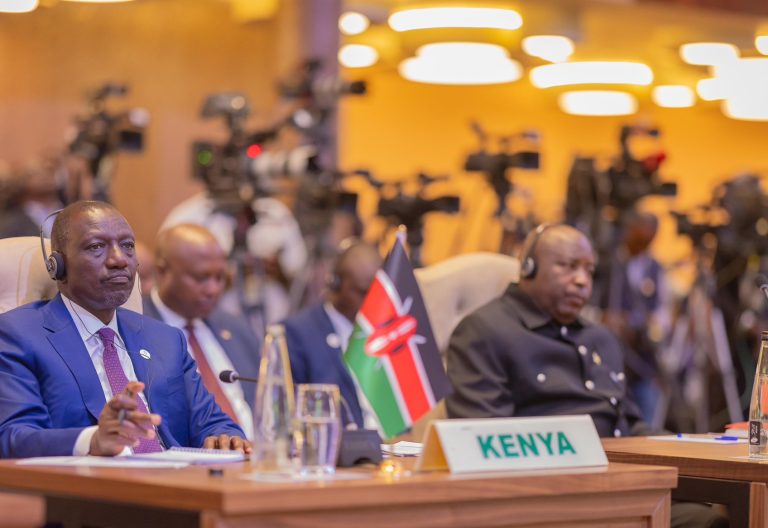Zuma will not get special treatment in jail—Minister

South Africa’s former president Jacob Zuma, who yesterday began a 15-month sentence for contempt, will be eligible to be released on parole in just under four months, the authorities said.
Under the country’s correctional regulations, “the former president will be eligible for parole once a quarter of his sentence has been served,” Justice Minister Ronald Ramola told reporters.
Zuma “will be afforded dignity throughout his term of incarceration,” he said, speaking in front of Estcourt prison in KwaZulu-Natal province.
Zuma handed himself in overnight to the police to begin serving the sentence at the jail, which is located in a small farming town.
The sentence was handed down by the Constitutional Court on June 29 after Zuma refused an order to appear before anti-graft investigators.
Zuma, who is in “good spirits” will be placed in isolation for the first 14 days in jail in line with Covid-19 protocols, the minister said, adding that he would not receive “any special treatment”.
The 79-year-old reported to prison early Thursday after mounting a last-ditch legal bid and defiance among radical supporters who had rallied at his rural home.
His battle transfixed the country, placing a spotlight on the issue of impunity and tensions within the ruling African National Congress (ANC).
South Africa’s top court on June 29 slapped Zuma with a 15-month term for refusing an order to appear before a probe into the corruption that entangled his nine years in power.
As police warned he faced arrest from midnight Wednesday, Zuma handed himself in to a jail in the rural town of Estcourt in his home province of KwaZulu-Natal.
Many South Africans hailed his incarceration as a watershed moment.
Former corruption buster and ex-ombudswoman Thuli Madonsela hailed it as a “glorious day, in that it says that the rule of law prevails.”
If he had not gone to prison, “it would have sent shock waves to the system,” she said.
The opposition Democratic Alliance said, “The law cannot be mocked and challenged with impunity. If the leader can go to prison, then so can anyone.”
But, it cautioned, the contempt sentence did not address the wider corruption, fraud, racketeering and money laundering that proliferated under Zuma.
The Nelson Mandela Foundation struck a similar note. “His legal strategy has been one of obfuscation and delay, ultimately in an attempt to render our judicial processes unintelligible,” it said.
The episode provided what is likely to be a crushing end to an extraordinary but tarnished career.
Born into poverty, Zuma started out as an uneducated herds boy who joined the ANC, becoming its intelligence chief in its struggle against the apartheid regime.
Charisma and courage
His charisma and courage, including 10 years in jail on the notorious Robben Island, placed him alongside Nelson Mandela, Oliver Tambo and other liberation heroes.
In 2009, he became democratic South Africa’s third president, but it proved to be a tenure darkened by divisions and the stench of corruption.
In 2018, Zuma was forced out by the ANC and replaced by Cyril Ramaphosa, a former trade union leader who became a tycoon after apartheid was finally dismantled 30 years ago. Investigators say that under Zuma, billions of dollars in State assets were siphoned off by cronies.
But their efforts to get Zuma to testify ran into a wall. Critics labelled him the “Teflon president” for his perceived ability to side-step justice.
Zuma had been given a deadline of Sunday night for turning himself in. Failing his surrender, police were given three days – until midnight Wednesday – to arrest him.
Zuma filed a last-ditch petition to overturn the arrest and pleaded with the Constitutional Court to rescind its sentence. The court will hear the plea on Monday.
Defiantly bucking the first deadline, Zuma declared at the weekend that he was prepared to go to prison, even though “sending me to jail during the height of a pandemic, at my age, is the same as sentencing me to death.”
“I am not scared of going to jail for my beliefs. I have already spent more than 10 years in Robben Island, under very difficult and cruel conditions,” he said.
As the Wednesday deadline loomed, police said they were prepared to carry out the arrest order unless ordered otherwise by the court.
Just minutes before midnight, Zuma’s foundation tweeted he had “decided to comply with the incarceration order” and hand himself in.
The drama has fuelled tensions with the ANC, where Zuma supporters have clamoured for the defence of their hero while others have demanded the law be allowed to run its course. – AFP














